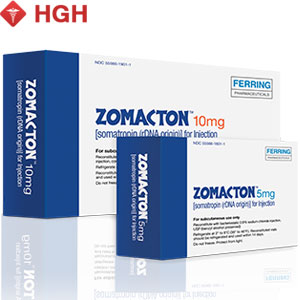When there is an increase in stress hormones, the body responds in various ways to counter-attack the anxiety. In response, almost as a default setting, your body will reduce the amount of testosterone it produces.
Although testosterone is not directly linked to the stress hormone, it plays a more prominent role in the way your body responds to the surrounding environment. If you are struggling to comprehend how the two relate, this article will take you through the process to ensure you get an understanding of how they work and how to keep them in a stable state for improved functionality.
Does Testosterone Reduce Stress?
To answer the question- does testosterone reduce stress? It does. Both stress and low testosterone have similar symptoms, which include:
- Fatigue
- Insomnia
- No or little interest to sex
- Mood swings and irritability
- Increased body fat
- Feelings of depression
- Osteoporosis due to decreased bone density
An increase in testosterone, however, helps the body to fight depression and enhances heart health. Therefore, an increase in T levels will automatically help you reduce stress hormone and its effects. However, lack of it in the body means you will have more stress-related symptoms that will reduce the quality of life.
How testosterone reduces stress

Does testosterone relieve stress? Yes. Testosterone plays a notable role in the body. It helps enhance sexual drive, build muscles, and melt fat. On the other hand, stress works in the opposite, which is contrary to the functions of testosterone. How testosterone relieves stress depends on how strong your hormone levels are. Also, other factors that matter include how often you engage in activities that trigger an increase such as exercises and testosterone therapy, especially when the stress hormone levels are highest.
Is Testosterone a Stress Hormone?
Cortisol is the stress hormone. However, the two often work closely, and they keep alternating. When the stress hormone is high, the T levels go down, and the reverse is true. Various studies, however, indicate that the two have little connections and it's not easy to relate them directly as they both function independently. Additionally, the both hormones have a higher influence on the way a man responds to different situations.
For instance, if a man is involved in an activity that is testosterone driven, he can easily lose concentration when another stress driven task takes place. So, is testosterone a stress hormone? No. Can stress affect testosterone levels? Yes.
Is Testosterone Released During Stress?
As indicated above, the two functions are in contrast to one another. When a man is experiencing chronic stress, he has to deal with low libido. Others don’t develop an interest in sex completely. Therefore, when a man is highly stressed, it gets difficult to release testosterone. In fact, during this period, some men can even experience infertility, although it is temporary if well managed. So, is testosterone released during stress? No.
Stress and Testosterone Levels
Stress and testosterone levels vary depending on situations. When you are in a stressful situation, all the body’s resources respond to survive the threat. This pushes the body to decide on the important things, depending on the situation at hand. During this period, however, the body chooses to ignore optimistic activities such as reproduction and growth, therefore, dropping the levels of testosterone. At such a moment when the body feels the need to respond to the crisis, the rise in cortisol, which is a stress hormone, is prioritized. Additionally, the things that you associate yourself with or you love doing also have an impact on testosterone and stress levels. For example, if you watch a pornographic movie, there are high chances that you may increase the level of testosterone and lower stress levels. On the other hand, watching a stressful movie will increase stress levels.
Can Stress Affect Testosterone Levels?
Stress seriously affects your testosterone levels. However, it's important to note that there are different levels of stress. These include temporary or acute and chronic stresses. The two have different effects on the body, and they have influences in various capacities. Most people can adapt to temporary stress, which makes it easy to live with. Therefore, depending on the capacity of the stress hormone, the impact can either be chronic or mild. When the body responds to the outward stress and gains stability, it starts to regenerate and focus on other optimistic activities, hence mobilize the increase of testosterone.
Conclusion
The text above is an answer to the question- does testosterone relieve stress. Although it's not easy to draw the line between stress and testosterone, it's important to ensure that you observe a stable lifestyle. When testosterone levels start to decrease, it is difficult to regain normal growth. A low T level is a problem that starts as early as when a man is in his 20s, and it can lead to a dangerous unproductive life in the future. Therefore, it's recommended that you start monitoring testosterone levels in advance to ensure proper functionality in the days to come.




